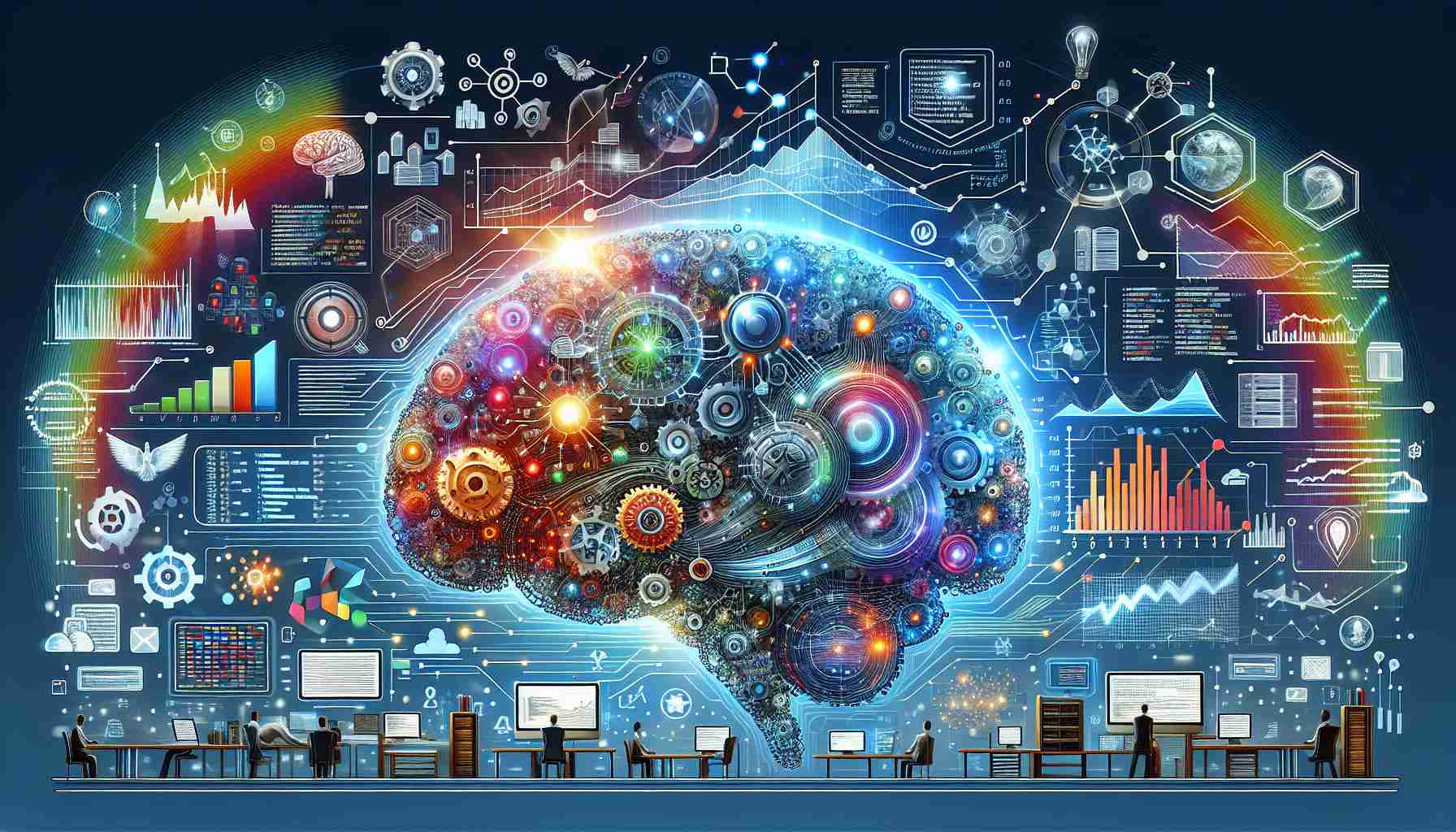Oracle Foresees Pioneering Shift Towards Generative AI
In recent statements, Oracle, an industry leader in technology, has highlighted the unprecedented pace at which generative artificial intelligence (Gen AI) is being embraced by the business world. The scale of its adoption eclipses that of historical tech revolutions like smartphones and personal computers.
Gen AI is not only dominating discussions across international corporate sectors but has significantly reshaped Oracle’s approach to innovation. A comparison of the first four years following the introduction of various advanced technologies showcases Gen AI’s accelerated adoption curve, remarked Chris Chelliah, Oracle’s senior executive for Technology and Customer Strategy in Japan and the Asia-Pacific region.
Oracle, ever since its adoption of AI features for businesses over three years ago, has been laser-focused on how these innovations could revolutionize everyday business operations and address complex customer challenges. As innovation continued, Oracle integrated AI and machine learning across its product line, leveraging key partnerships to usher in this new era.
Saravanan Palanivel, Oracle India’s Vice President of Cloud Engineering, speaks of AI’s evolving efficiency, which has fast-tracked its proficiency in tasks that once took decades to master. AI reached human-level capabilities in speech recognition and other areas at a pace previously unseen, indicating steep advances in machine learning.
Fueled by these leaps in adoption and prowess, AI stands to be a powerhouse in the global economy. Investment growth is skyrocketing, with AI on track to augment the global GDP by a staggering $16 trillion within the next seven years. Such financial projections demonstrate the transformative potential AI holds for the future of global industry and technology.
Key Questions and Answers:
Q: What is generative AI (Gen AI) and how does it differ from other forms of AI?
A: Generative AI is a type of artificial intelligence that can generate new content after learning from existing data. It’s capable of tasks such as creating realistic images, writing text, and producing music or code. Unlike traditional AI, which typically analyzes and interprets data, generative AI can actually create new, original output that did not previously exist.
Q: Why is the adoption rate of Gen AI surpassing that of earlier technologies like smartphones and PCs?
A: Gen AI is being adopted rapidly due to its transformative capabilities and applicability across a wide range of industries. Its potential to automate complex tasks, drive efficiency, and innovate product development leads to significant competitive advantages. Additionally, the availability of cloud computing and large datasets facilitates its integration into existing systems.
Q: What industries are most impacted by the integration of Gen AI?
A: Industries such as technology, finance, healthcare, automotive, entertainment, and customer service are significantly impacted by Gen AI, as it can streamline operations, enhance personalization, and foster innovation within these sectors.
Key Challenges or Controversies:
– Ethical implications: The ability of Gen AI to create fake images, videos, and text (deepfakes) raises concerns about misinformation and digital deception.
– Data privacy: Training generative AI models often requires large datasets, which can sometimes include personal or sensitive information, posing the risk of privacy breaches.
– Job displacement: The automation of tasks previously performed by humans could lead to job losses and require retraining of the workforce.
– Intellectual property: As generative AI can produce art, music, and more, it brings into question the ownership and copyright issues of AI-generated content.
Advantages:
– Innovation: Gen AI can help in discovering new solutions and creating novel products, thus fostering innovation.
– Efficiency: Automating routine tasks can significantly improve efficiency and reduce human error.
– Economic growth: AI is projected to add trillions to global GDP, indicating its potential to contribute to economic prosperity.
Disadvantages:
– Quality control: AI-generated content may sometimes lack the nuanced understanding that a human creator can provide.
– Dependence on data: The quality of the output from generative AI is highly dependent on the quality of the data it was trained on.
– Control and governance: Ensuring proper use and preventing the misuse of Gen AI technology is a complex challenge.
For additional information on the broader subject matter, here are some related links:
– Oracle – For information on Oracle’s work with AI and their cloud services.
– Gartner – For research and analysis on the latest trends in AI and technology adoption rates.
– AI Global – For discussions on the global impacts and governance of AI technology.
– DeepMind – For breakthroughs and research publications from one of the leading companies in advanced AI.
Always be sure to verify URLs to ensure that they are legitimate and relevant to the content before use.
